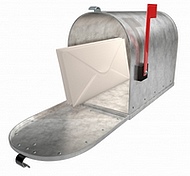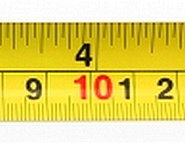| Print this article |
Content Strategy: Key Elements To Grab Online Readers Attention
Writing blog posts that get the maximum attention, is not an easy task. Sometimes it gets even to be counterintuitive, as, more often than not, I have realized that posts I wouldn't have bet a dime on, got incredible exposure, visibility, links and traffic against all of my own presupposed expectations. How is that then, that what you value most sometimes is appreciated least and what you consider easy or low-level stuff gets raving fans around the Web faster than lightning?

Various authors mashed up by Robin Good - see credits at the end of the article
Good question indeed.
Attention grabbing articles are very difficult to pull off, as the amount of other sources and the continuous increase of news content makes it all the more difficult to not only stand out from the crowd, but even to be barely seen.
If I had to name three things that can stop people in their tracks when browsing or searching for new content, these would be my three key items:
Key Elements To Grab Online Readers Attention
1) Title
You can't escape this one. This is the visual and cognitive handle to information, so you HAVE to see a title, before you can make a more definitive choice about whether to fully engage with it or not.
Titles can be done in a million different ways and there are some very different schools of thought around which is the best way to approach this. I take it a little philosophically and prefer to look at the actual numbers and only after at what I feel is most appropriate from an information publishing / gathering viewpoint. And my numbers seem to say quite clearly that unless you spell out clearly, the topic of what your article is about, you can be as ironic and clever as you want but very few readers will be attracted to read right into your content when your title will be in competition with other titles next to it.
2) First Paragraph
How you start an article is the second most important factor, in my opinion, that influences readers in deciding whether to click for more or to jump to the next one.
First paragraphs are also very important because they frequently appear in newsletters, search engine results, and below titles inside RSS readers and aggregators. Therefore your potential readers do get a glimpse of what you have written about that can significantly clarify your focus, goals and whatever other important things you may reveal in your blog post. This is one of the reasons why the first sentence in that paragraph and your specific wording inside it can really make a strong impact on your potential reader's final decision. The more you hit something dear to them or something specific that they want to know more about, you have got their attention. The more you tell them clearly and immediately the value (or lack of it) of a certain story, the more opportunities for the reader to find a matching feeling or interest.
3) Visual Clues
If your article is associated with an image, icon or any other visual clue that conveys more to the reader than the first text paragraph can, your content stands much higher probabilities of being read.
Problem is, not every visual clue works toward obtaining this goal. Yes, utilizing images, visuals and videos significantly increases the probability of your reader spending more time on your content, but this is particularly true especially when the visual element create a strong cognitive, identification match in the mind of the reader. This is why, is not extremely important to place images for the sake of making your content more "visual". Actually poorly selected and prepared images can easily discredit or diminish the perceived value and credibility of just any content.
But this is just my point of view.
Here also the viewpoint of guest contributor Sharon Housley, who looks more in depth at the same issue.
To make my contribution both more enjoyable for me and more interesting for you as well, I first wrote my three points and only then looked at the ones Sharon had herself selected. Then I went onto adding a small, short comment on each one of her suggestions, as my strategy and tactics are sometimes radically opposite to the more traditional ones, she kindly recommends.
Blog Posts That Get Attention
by Sharon Housley
a) Draw Attention

Use titles to attract the reader's attention to the blog post.
The title should mimic newspaper headlines and generate interest in the blog post.
The title can be controversial, but not to the extent of being misleading. Use action words in the title.
Bloggers will often come up with a handful of potential titles for blog posts, and then settle on the title that is best suited to a particular blog post.
Robin Good comment: In my view, on the web, Titles should almost NEVER mimic newspaper headlines. This is a recipe for little success and no long term sustainability. The Web works on a different set of principles and the very reasons that make catchy newspaper titles effective in the physical world (space scarcity) can't be so easily applied to the web reality.
b) Deliver

Having a catchy title, but following it with content that fails to deliver, will not endear you to your readers.
The blog content must deliver what is promised in the blog title, or readers will unsubscribe and stop reading.
When deciding on a blog title, do not stray too far from the content, as the two are intricately related -- the title will attract the reader's attention, but the content must then live up to expectations... or the blogger's reputation will suffer.
Robin Good comment: Couldn't agree more on this one.
c) Accurate

Nothing stains a blogger's reputation like inaccurate information, so be sure that your blog posts contain accurate information.
Intentionally posting inaccurate or false information will significantly damage a blogger's reputation.
But if an error unintentionally or inadvertently occurs in a blog post, be sure to quickly post a retraction or correction, along with an explanation and an apology in order to salvage your good reputation.
Robin Good comment: Yes, this is the way to go.
d) Relevant & Timely

Blog posts should always be relevant and timely.
Hearing about something long after it has occurred will not captivate readers.
Blog about information that is occurring in the here and now.
If you are going to write something that is no longer timely, be sure to add some sort of twist, or include new or updated information to make it relevant.
Robin Good comment: Relevant is NOT the same as timely. Relevant is relative to the reader's interest at any given time while "timely" is generally connected to events, news and product information that is highly time-sensitive (product launches, events, breaking news, and so on). My experience and data say that you can have posts and articles that have nothing to do with the mainstream news and are not connected to any specific individual event but which grab and hold attention for your readers more than the more sensationalist of your breaking news. So, my advice is more toward advising publishers to provide highly interesting and valuable content to their readers rather than focusing on trying to break the news better than the others do. (This article is a living example of this and if you look at Sharon's original published article, it doesn't even carry a date.)
e) On Topic

All blogs should have a general theme that connects all the posts on the blog.
Readers will expect posts that are related, so stay true to the blog's theme and topic.
Robin Good comment: Couldn't agree more. The way to go.
f) Use Keywords

Use keywords liberally in blog posts.
Search engines will attempt to categorize the content of a blog post and discern its general topic.
By including related keywords or keyword phrases, search engines will have an easier time classifying the blog's contents.
Additionally, a blog that uses keywords will have a better chance of ranking well for those keywords or keyword phrases in organic search listings.
Robin Good comment: I think that if you are not copying, scraping or copying and pasting content from other sites, consistency of terminology will come by itself and with it search engines ability to more easily classify and give relevance to your content. I am not too comfortable with advising people in using keywords, because I have seen over and over than when you tell them so, they go overboard, they stop writing valuable content and become SEO-obsessed content patchers who have nothing to do with professional web publishers like the ones I want to be talking to now. What you want to do is rather to write on a clear, well framed topic, while writing in the more legible and understandable way. Avoiding content that is too informal, implicit expressions or subjects gives you an easy way to communicate more effectively while naturally defining the topic of your writing.
g) Evaluate Web Logs

Review web logs to determine what blog posts have been popular with readers.
Then figure out how to provide similar or related content that might also be of interest to those readers.
Robin Good comment: Yes! Treasure trove.
h) Original

Blog posts should always contain original and unique content.
If you are simply re-posting information from others, include editorial content or a different spin to the information.
Readers do not want to constantly rehash the same information -- they are interested in reading new material.
Robin Good comment: Hmmm... opportunity. How you combine, bring together, illustrate and connect the information you have available can make a huge difference in how people perceive it. So, while I agree with advising web publishers in avoiding a content strategy based on just re-posting other people's content, I have long realized that one of the most valuable things a web publisher can do is actually to edit, bring together and extend in valuable ways the work done by others.
j) Chunky Content

Break content into smaller, readable chunks.
Most website visitors will just scan paragraphs for information, and very few will take the time to read all the words contained in a post.
Use bulleted lists, or break web copy into paragraphs with bolded sub-topics that appear before the paragraphs.
Robin Good comment: Right on. These are important points and the more you learn about them and the logic behind it, the better you can control the effects they can produce.
And You?
What else would you add to the above items, as critical components that could significantly improve the possibility of an article to effectively grab the readers attention?
Photo credit:
Draw Attention - cre8tive88
Deliver - jamesgroup
Accurate - devon
Relevant & Timely - nruboc
On Topic - scops
Use Keywords - fstutzman
Evaluate Web Logs - robynmac
Original - mipan
Chunky Content - scol22
Originally written by Robin Good - MasterNewMedia and Sharon Housley for rss-specifications and first published as "Blog Posts that Attract Attention". Edited, formatted and extended with personal comments by Robin Good.
| Print this article |

blog comments powered by Disqus